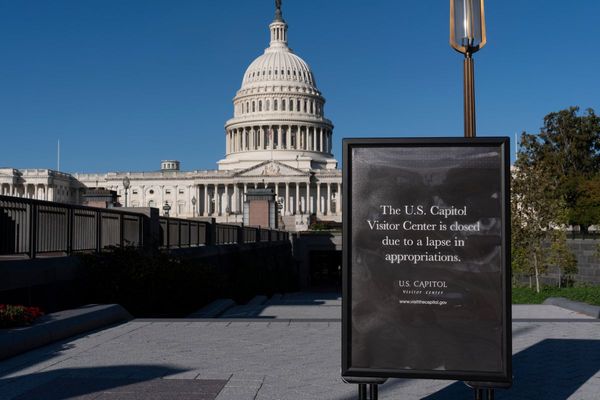The pound hit a five-month high this morning as currency markets processed a weekend of political drama. Sterling initially slid 0.4 per cent against the dollar before recovering to rise above $1.30 in a volatile session after MPs backed an amendment to delay approving the Brexit deal.
UK property asking prices registered their worst October since 2008, according to new figures from Rightmove, in the latest signal that the property market is slowing down.
Please allow a moment for the live blog to load...
“Coastal towns such as Blackpool are clearly struggling to reinvent themselves and throw off their old image. Further investment is going to be needed to help these towns unlock their potenti
could have been a more resilient growth period for the UK economy.
The John Lewis Partnership, which includes John Lewis and Waitrose, has announced it will stop selling Christmas crackers containing plastic toys.
Instead, the crackers will be filled with toys made from recyclable materials, including metal and paper games.
The retailer has also vowed to remove plastic glitter from all of its own-brand gift wrapping, which includes glitter that might have been used to decorate crackers.
The company has already removed plastic wrapping from the majority of the greeting cards it sells, which the retailer claims has saved it from using eight tons of plastic each year.
Dan Cooper, partner and head Christmas buyer at John Lewis, said: “Reducing the amount of single-use plastic in products and packaging is really important to us and our customers.
Mistakes in the outsourcing of public services have cost UK taxpayers £14.3bn, according to analysis of official investigations that haven taken place in the past three years.
Independent think tank Reform has looked at 52 inquiries, conducted between June 2016 and July 2019, into outsourcing contracts initially valued at £71.1bn. It found that eventual costs were 20 per cent – or £14.3bn – higher, as the government had to cover delays and unplanned expenses, and missed out on income and profit from certain schemes.
“Our public services cannot function without outsourcing. But when it goes wrong, it’s taxpayers who end up footing the bill,” said Dr Joshua Pritchard, senior researcher at Reform.
“The £14.3 billion wasted as a result of poorly drawn up and managed government contracts is inexcusable.”
The biggest example of overspending is Crossrail, according to Reform’s report published on Monday. Overruns and unexpected costs have cost the government an extra £2.8bn, while another £600m has been lost in foregone income from passengers due to delays in opening the line.

Bad outsourcing deals have cost UK taxpayers an ‘inexcusable’ £14.3bn
Biggest examples of overspending include Crossrail, HS2 and ferries for no-deal BrexitFunding Circle has faced a turbulent year, and shares, which listed for 440p 13 months ago, are now fetching less than 110p - a fall of three-quarters.
Passengers forced to use outdated Northern Rail Pacer trains should benefit from reduced fares, politicians have argued in a letter to the train operator.
Northern Rail, a subsidiary of Arriva, has said that a “small number” of Pacers will remain in service into 2020. The trains were originally due to be withdrawn this year.
Pacers, built in the 1980s from old bus frames, were designed as short-term alternatives to trains.
Manchester mayor Andy Burnham, Sheffield City Region mayor Dan Jarvis and Leeds City Council leader Judith Blake have written to Northern Rail managing director David Brown to express their “deep disappointment and frustration” with the situation.
They want Northern to reduce fares on the routes that run Pacer trains until the new rolling stock is introduced.

Compensate Northern passengers using old Pacer trains, say politicians
Trains were originally due to be withdrawn from service this yearThousands of small businesses are struggling to stay afloat amid an “unprecedented” slump in confidence since the Brexit vote, the government has been warned.
Sajid Javid, the chancellor, was urged by the Federation of Small Businesses (FSB) to introduce “radical interventions” in next month’s budget to address slowing economic growth.
The group said thousands of smaller firms were being crippled by spiralling operating costs, and warned major reductions in business rates were necessary to avoid “a very bleak winter”.
“Small businesses have been left hamstrung by uncertainty for the past three years,” said Mike Cherry, the FSB chairman.
“We need to see the chancellor step up to the mark next month with measures that will reinject optimism into the small business community and enable growth. Otherwise, we’re in for a very bleak winter.”

Thousands of small businesses at risk amid ‘unprecedented’ confidence slump since Brexit vote
Sajid Javid urged to make ‘radical interventions’ to avoid ‘a very bleak winter’Two striking facts about Britain: the disparity in incomes on these shores means we’re closer to some developing countries than to richer economies, and one fifth of the UK population lives in poverty.
Income inequality in the UK is among the highest in the EU. It is also above the average for the Organisation for Economic Co-operation and Development, a group of 36 mostly wealthy countries, including the US.

Opinion: How growing inequality poisons democracies, and leaves Britain ill-prepared for the coming election
It is harder to think of the greater good when you feel personally short-changed. Resentment is not conducive to generosityEthnic minorities in the UK earn around 10 per cent less than white workers, even once individual and job characteristics are taken into account, the Bank of England has found.
The central bank set out to go beyond simple data on pay differences and added another layer of analysis to remove the effects of such attributes as education, location and the kind of jobs different ethnic groups choose.
For example, working in London boosts earnings by 21 per cent compared with a job in the north, and 40 per cent of ethnic minorities work in the capital. Ethnic minority workers also tend to have higher qualifications than their white counterparts.
The findings, laid out in a speech by Bank of England chief economist Andy Haldane on Monday, reveal a wider ethnicity pay gap than raw statistics suggest. It is also a “strikingly” persistent gap, having narrowed less over the past quarter-century than the pay disparity between genders.
“The ethnicity pay gap problem in the UK is every bit as acute as the gender pay gap problem,” Mr Haldane said.

Ethnic minorities earn 10% less than white workers in UK, study shows
Removing effects of such attributes as education, location and kind of jobs ethnic groups choose still reveals wide and persistent pay gapPower generation from renewable sources is set to jump 50 per cent over the next five years, helped by a sharp increase in the number of solar panels on buildings, according to a report.
The International Energy Agency (IEA) forecasts that an extra 1,200 gigawatts of renewable energy will be added globally by 2024 – equivalent to the current total power-generating capacity of the United States.
However, it warned that the expansion remains well below what is needed to meet global sustainable energy targets.
The report predicts that cost reductions and “concerted government efforts” will drive the increase in solar photovoltaic (PV) systems, which will account for 60 per cent of additional renewable capacity.
“Renewables are already the world's second-largest source of electricity, but their deployment still needs to accelerate if we are to achieve long-term climate, air quality and energy access goals,” said Dr Fatih Birol, the IEA’s executive director.








